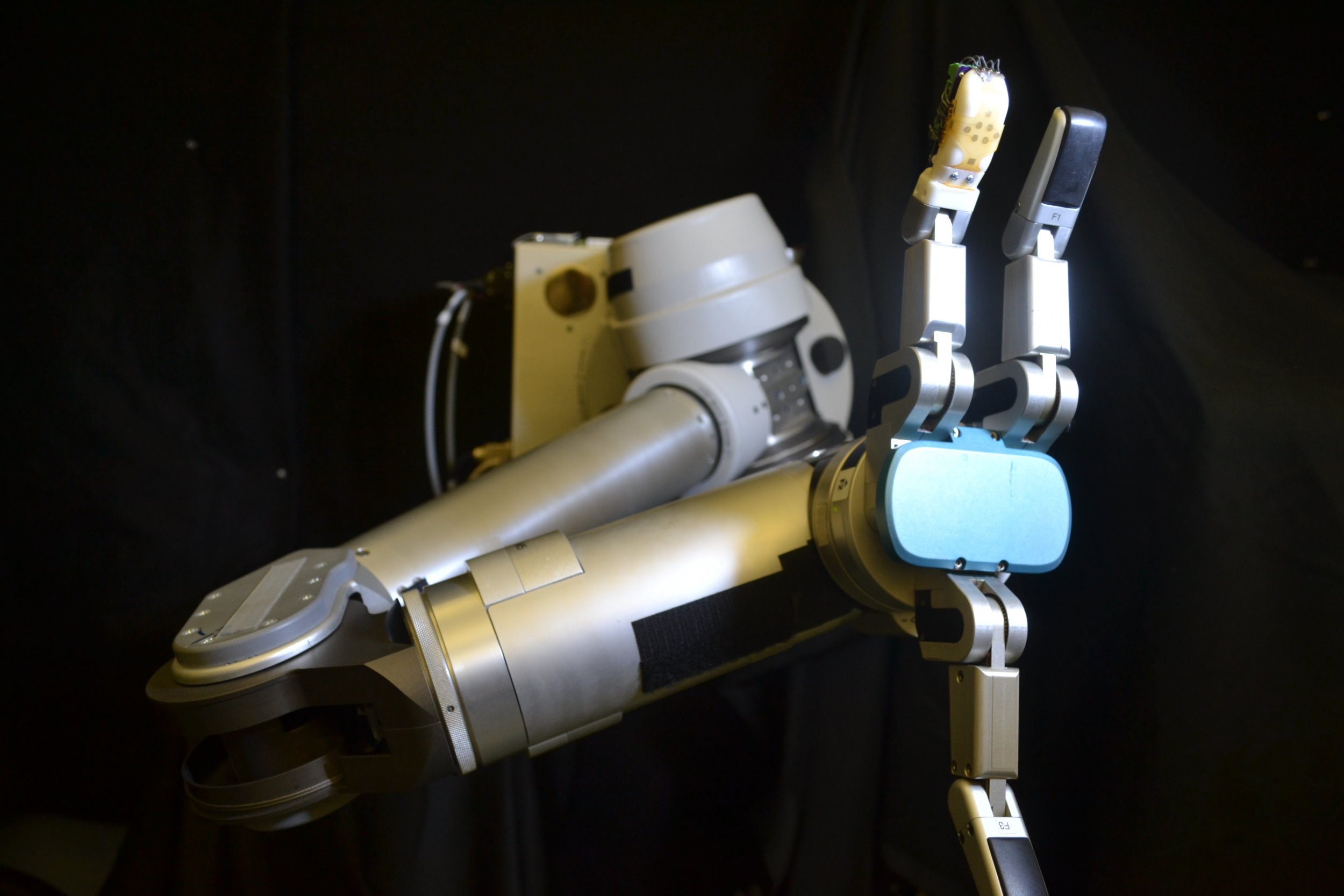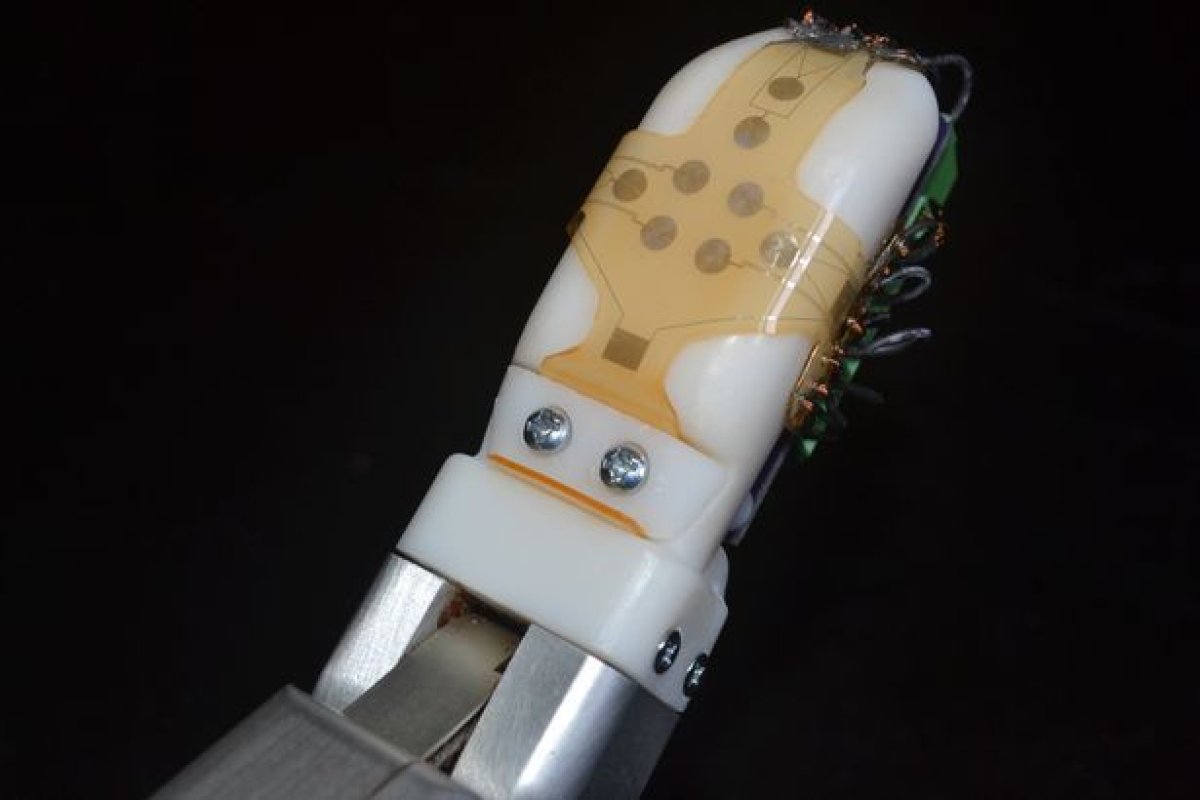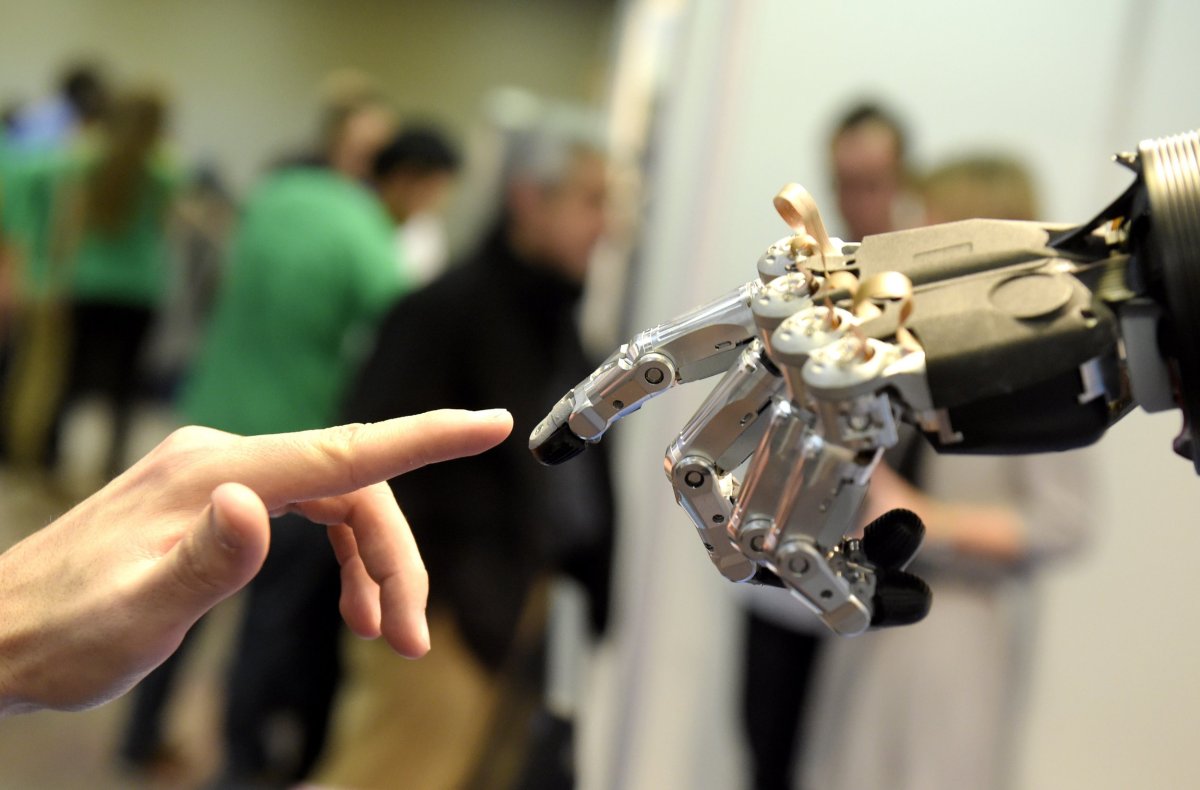
Robots capable of disabling roadside bombs with the same dexterity as humans may soon be a reality, after engineers developed artificial skin that has the same sensitivity as a human hand.
Researchers from UCLA and the University of Washington embedded flexible sensors into artificial skin that can be stretched over robotic fingers or prosthetics to improve their applications.
The sensors allow robots to perform everyday tasks by accurately sensing the vibrations and shear forces that are essential for gripping and manipulating objects.

"Robotic and prosthetic hands are really based on visual cues right now—such as, 'Can I see my hand wrapped around this object?' or 'Is it touching this wire?' But that's obviously incomplete information," said Jonathan Posner, a professor of mechanical engineering at the University of Washington and senior author of the research.
Mimicking the way the human finger experiences compression and tension also allows robots to perform everyday tasks with a similar precision to humans, with potential applications ranging from surgical procedures to frying an egg.
Read more: Artificial skin that grows hair could end cosmetics testing on animals
It is not the first artificial skin to be developed by scientists, though the engineers behind it claim it is more advanced than traditional tactile sensors. The skin—made of the same silicone rubber that is used in swimming goggles—makes use of tiny channels filled with electrically conductive liquid metal.

When the skin encounters a force or vibration, the electricity flowing through the channels change as the geometry is distorted. By measuring the electrical resistance, the research team was able to correlate it to the amount of shear forces or vibrations the robot finger is feeling.
"Traditionally, tactile sensor designs have focused on sensing individual modalities: normal forces, shear forces or vibration exclusively," said Veronica Santos, a UCLA professor and co-author of the research. "However, dexetrous manipulation is a dynamic process that requires a multimodal approach. The fact that our latest skin prototype incorporates all three modalities creates many new possibilities for machine learning-based approaches for advancing robot capabilities."
In designing the skin, the engineers followed "cues of human biology" in order to create sensors that make it easier to perform human tasks, such as opening a door, playing jazz instruments, interacting with a phone and shaking hands.
"By mimicking human physiology in a flexible electronic skin, we have achieved a level of sensitivity and precision that's consistent with human hands, which is an important breakthrough," Posner said.
"The sense of touch is critical for both prosthetic and robotic applications, and that's what we're ultimately creating."
The artificial skin was described in research published in the journal Sensors and Actuators A: Physical.
Uncommon Knowledge
Newsweek is committed to challenging conventional wisdom and finding connections in the search for common ground.
Newsweek is committed to challenging conventional wisdom and finding connections in the search for common ground.
About the writer
Anthony Cuthbertson is a staff writer at Newsweek, based in London.
Anthony's awards include Digital Writer of the Year (Online ... Read more
To read how Newsweek uses AI as a newsroom tool, Click here.








